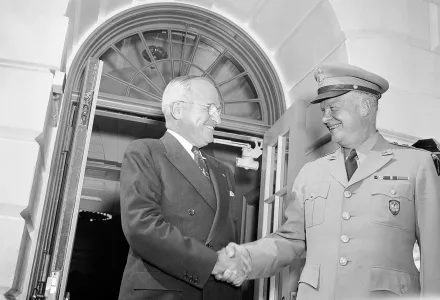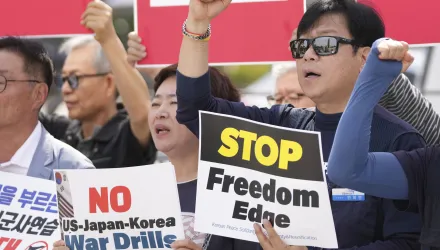International Security is America's leading peer-reviewed journal of security affairs.

The conventional wisdom describes the early Cold War as a lost golden age of bipartisan consensus. This article uses public opinion data, congressional voting patterns, and party platform statements to refute it. The core internationalist principles that enjoyed bipartisan agreement during the Truman and Eisenhower administrations retain widespread approval from Democrats and Republicans today. Rising political divisions in U.S. foreign policy are primarily a result of Democrats and Republicans deploying global influence in new ways rather than renouncing traditional commitments.
Jeffrey A. Friedman, "The Myth of a Bipartisan Golden Age for U.S. Foreign Policy: The Truman-Eisenhower Consensus Remains," International Security, Vol. 49, No. 2 (Fall 2024), pp. 97–134.





